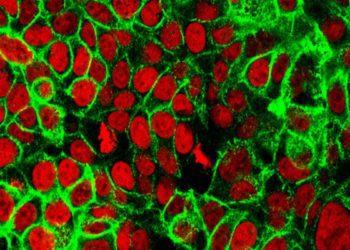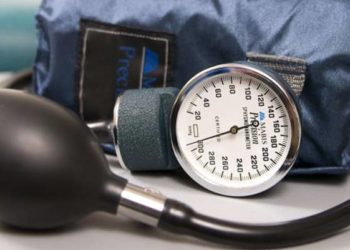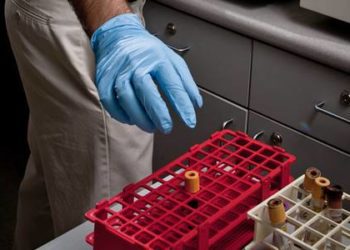Fecal immunochemical testing may be efficient for colorectal cancer screening in younger patients
1. In this retrospective cohort study, fecal immunochemical test completion rates in individuals aged 45 to 49 years were slightly higher than those aged 50 years, and positivity rates were slightly lower in the younger cohort.
2. Receipt of colonoscopy after a positive fecal immunochemical test was similar in both age groups, but the false-positive rate was higher among the younger group.
Evidence Rating Level: 2 (Good)
Study Rundown: Colorectal cancer (CRC) is associated with significant morbidity and mortality worldwide. CRC screening involves the detection of pre-cancerous lesions and early-stage cancer in asymptomatic individuals. Previous guidelines recommended starting CRC screening at 50 years of age for average-risk individuals, but several organizations including the American Cancer Society, the United States Preventive Services Task Force, and the American College of Gastroenterology have advised starting screening at 45 years of age based on increasing disease burden in younger populations. However, there is little data available on screening completion rates and outcomes in this younger population. This retrospective cohort study aimed to investigate rates of fecal immunochemical testing (FIT) completion, FIT positivity, and colonoscopy follow-up after a positive FIT, as well as colonoscopy yield in individuals aged 45 to 49 years versus 50 years across 3 Kaiser Permanente health systems. It was found that FIT completion rates were slightly higher overall in individuals aged 45 to 49 years, although there was substantial variation across sites. FIT positivity was slightly lower in the younger cohort, but receipt of colonoscopy following a positive FIT was similar in both age groups. On colonoscopy, colorectal cancer was detected at a similar rate between the two groups, but detection of any adenoma was slightly lower among those aged under 50 years. Given that the study only sampled patients within select Kaiser Permanente systems, its generalizability to other health care settings is limited. In addition, the low rates of neoplasia events rendered wide confidence intervals on specific risk ratio estimates. Overall, these results suggested that colorectal cancer screening yield in adults aged 45 to 49 years was similar to that of those aged 50 years and above.
Click to read the study in AIM
Relevant Reading: Colorectal cancer screening: recommendations for physicians and patients from the U.S. Multi-Society Task Force on colorectal cancer
In-Depth [retrospective cohort]: This retrospective cohort study aimed to compare the completion rates and yield of FIT between persons aged 45 to 49 years and 50 years. Individuals were eligible if they were registered within Kaiser Permanente health systems and had a documented FIT kit distribution date between January and September 2022. Patients with a prior colonoscopy, prior lower gastrointestinal surgery, history of CRC, or inflammatory bowel disease were excluded. The primary study outcomes included FIT completion within 3 months of the FIT distribution date, the proportion of FITs with a positive result, follow-up colonoscopy completion within 3 months of a positive FIT result, and colonoscopy findings. A total of 213,928 individuals aged 45 to 49 years and 53,804 individuals aged 50 years were included in the study. Overall, FIT completion rates were slightly higher in the younger cohort (38.9% vs. 37.5%; adjusted risk ratio [aRR], 1.05; 95% confidence interval [CI], 1.04 to 1.06). FIT positivity was lower in the younger group (3.6% vs. 4.0%; aRR, 0.91; 95% CI, 0.84 to 0.98) and colonoscopy completion following a positive FIT result was similar between both groups (64.9% vs. 67.4%; aRR, 1.00; 95% CI, 0.94 to 1.05). Detection rates were lower in the younger group for adenomas (58.8% vs. 67.7%; aRR, 0.88; 95% CI, 0.83 to 0.95) but similar between groups for polyps with high-grade dysplasia (3.4% vs. 5.1%; aRR, 0.68; 95% CI, 0.44 to 1.04), sessile serrated lesions (10.3% vs.11.7%; aRR, 0.92; 95% CI, 0.71 to 1.21), and CRC (2.8% vs.2.7%; aRR, 1.10; 95% CI, 0.62 to 1.96). In summary, this study demonstrates similar FIT completion and yield rates between individuals 45 to 49 and 50 years of age.
Image: PD
©2024 2 Minute Medicine, Inc. All rights reserved. No works may be reproduced without expressed written consent from 2 Minute Medicine, Inc. Inquire about licensing here. No article should be construed as medical advice and is not intended as such by the authors or by 2 Minute Medicine, Inc.







